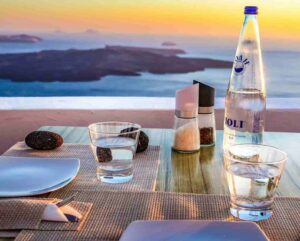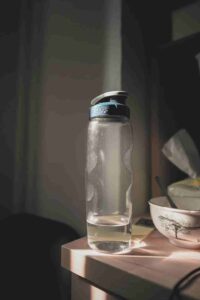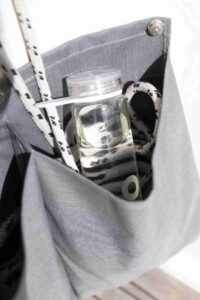In recent years, the debate over whether drinking water from glass bottles is healthier than from plastic bottles has gained momentum. Health enthusiasts and environmentally-conscious individuals often advocate for glass, while the convenience and affordability of plastic remain significant factors for many. In this blog, we will explore the health implications, environmental impact, and practical considerations of using glass versus plastic bottles.
Section 1 Health Implications
1.1 Chemical Leaching
▶ Plastic Bottles and Chemical Leaching
Plastic bottles, especially those made from polyethylene terephthalate (PET), can leach chemicals into the water they contain. The most concerning of these chemicals are bisphenol A (BPA) and phthalates, which are used to make plastics more flexible and durable. Research has shown that BPA and phthalates can mimic hormones in the body, potentially leading to various health issues, including hormonal imbalances, reproductive problems, and an increased risk of certain cancers.
▶ Glass Bottles: A Safer Alternative?
Glass bottles do not contain BPA, phthalates, or any other harmful chemicals. This makes them a safer choice for storing and drinking water. Glass is a non-porous material, meaning it does not absorb or release any substances, ensuring that the water remains pure and uncontaminated.

1.2 Taste and Purity
▶ Taste Differences
Many people report that water tastes better when stored in glass bottles compared to plastic. This difference in taste can be attributed to the absence of chemicals that can leach from plastic bottles. Glass preserves the natural taste of water, providing a cleaner and more refreshing drinking experience.
1.3 Microplastic Contamination
▶ The Problem with Microplastics
Microplastics are tiny plastic particles that can contaminate drinking water. Studies have found that bottled water, particularly in plastic bottles, contains higher levels of microplastics compared to tap water. These particles can originate from the bottle itself or from the bottling process. The long-term health effects of consuming microplastics are still being studied, but there is growing concern about their potential impact on human health.

Section 2 Environmental Impact
2.1 Plastic Pollution
▶ The Scale of the Problem
Plastic bottles contribute significantly to global plastic pollution. Millions of plastic bottles are discarded every day, and many of them end up in landfills or oceans, where they can take hundreds of years to decompose. This pollution harms marine life, ecosystems, and even enters the food chain, posing risks to human health.
2.2 Recycling and Reusability
▶ Recycling Rates
While plastic bottles are recyclable, the recycling rate is relatively low. According to the Environmental Protection Agency (EPA), only about 29% of PET bottles are recycled in the United States. The rest contribute to the growing problem of plastic waste.
▶ Glass Bottles: A More Sustainable Choice
Glass bottle for water drinking are 100% recyclable and can be recycled indefinitely without losing their quality. This makes them a more sustainable option. Additionally, reusable water glass bottle are often reused multiple times before being recycled, further reducing their environmental footprint.

Section 3 Practical Considerations
3.1 Durability and Weight
▶ Plastic Bottles: Lightweight and Durable
Plastic bottles are lightweight and resistant to breaking, making them convenient for on-the-go use. Their durability makes them ideal for outdoor activities, sports, and travel.
▶ Glass Bottles: Heavier but Sturdier
Glass bottles are heavier and more fragile than plastic bottles. While this makes them less convenient for certain activities, their sturdiness ensures that they can be reused many times. Some modern glass drinking bottles are designed with protective silicone sleeves to reduce the risk of breakage.

3.2 Cost
▶ Initial Investment
Plastic bottles are generally cheaper to purchase than glass bottle for water. However, the cost of repeatedly buying disposable plastic bottles can add up over time.
▶ Long-Term Savings with Glass
Investing in a reusable glass bottle can lead to long-term savings. By refilling a glass bottle with tap or filtered water, you can reduce the need to buy bottled water, ultimately saving money and reducing waste.
|
Factor |
Glass Bottles |
Plastic Bottles |
|
Chemical Leaching |
None |
BPA, phthalates, and other chemicals |
|
Taste |
Preserves natural taste |
May alter taste due to chemical leaching |
|
Microplastics |
None |
Higher levels of contamination |
|
Environmental Impact |
Fully recyclable, reusable |
Significant plastic pollution |
|
Durability |
Fragile, heavier |
Lightweight, durable |
|
Cost |
Higher initial cost, long-term savings |
Lower initial cost, higher long-term cost |
Choosing between glass and plastic bottles ultimately comes down to personal preference and lifestyle. However, for those prioritizing health and environmental sustainability, glass bottles are the superior choice.

Conclusion
In conclusion, drinking water from glass water bottle offers several health and environmental benefits over plastic bottles. Glass bottles eliminate the risk of chemical leaching, preserve the natural taste of water, and do not contribute to microplastic contamination. They are also more environmentally friendly, being fully recyclable and reusable.
While plastic bottles are more convenient and affordable in the short term, their long-term impact on health and the environment is concerning. By choosing glass bottles, you can make a positive impact on both your health and the planet.
At Smilebottles, we are a Chinese glass bottle manufacturer specializing in custom glass water bottles. Our commitment to quality and sustainability drives us to produce glass bottles that meet the highest safety standards and offer a stylish and eco-friendly alternative to plastic. Our custom glass water bottles are designed to cater to the unique needs of our clients, whether they are seeking a specific shape, size, or branding. By choosing our glass bottles, you are making a choice that benefits your health and the environment, while also enjoying a product tailored to your exact specifications.










